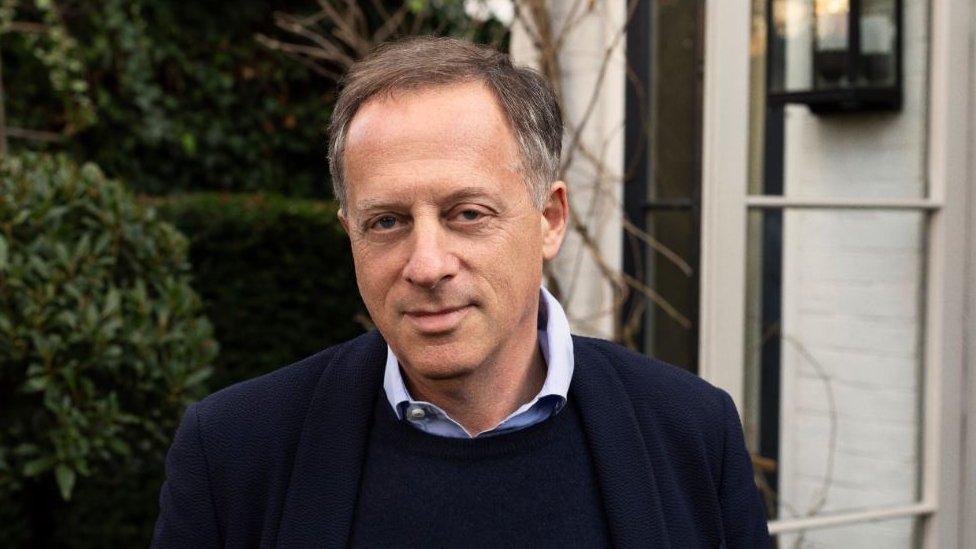Former banker Richard Sharp to be next ҙуПуҙ«ГҪ chairman
- Published

Former Goldman Sachs banker Richard Sharp is set to be named the ҙуПуҙ«ГҪ's next chairman, the corporation's media editor Amol Rajan says.
Mr Sharp spent 23 years working for the banking giant and was reportedly Chancellor Rishi Sunak's boss there.
He has recently been acting as an unpaid economic adviser to Mr Sunak during the coronavirus pandemic.
His new role will see him lead negotiations with the government over the future of the licence fee.
The licence fee is due to stay in place until at least 2027, when the ҙуПуҙ«ГҪ's Royal Charter ends, with a debate about how the broadcaster should be funded after that.
The government is currently reviewing whether its cost, currently ВЈ157.50, should continue rising with inflation from 2022, and whether non-payment should remain a criminal offence.
Mr Sharp's career at Goldman Sachs culminated as chairman of its principal investment business in Europe before his departure in 2007. He was then on the Bank of England's Financial Policy Committee for six years until 2019.
As an advisor to the Treasury about its pandemic response, the 63-year-old reportedly played a key role in the ВЈ1.57bn arts rescue package, and the film and television production restart scheme.
Mr Sharp is a former donor to the Conservative party.
He was chairman of the Royal Academy of Arts from 2007 to 2012, and founded the charity London Music Masters.
Sir David Clementi, the current ҙуПуҙ«ГҪ chairman, steps down in February. The post-holder is officially appointed by the Queen on the recommendation of the government.
Julian Knight, the chair of the DCMS Committee, said in a statement: "It is disappointing to see this news about the next ҙуПуҙ«ГҪ chairman has leaked out ahead of a formal announcement from the Department of Digital, Culture, Media and Sport. The Committee previously expressed some concerns over the appointments process, calling for it to be fair and transparent.
"The DCMS Committee looks forward to questioning the preferred candidate for the post in a pre-appointment hearing next week on their views at a critical time for the ҙуПуҙ«ГҪ about its role and the future of public service broadcasting more generally."
His views on the ҙуПуҙ«ГҪ itself are unknown. But like new director general Tim Davie, who he met a few weeks before Christmas, he has a commercial background. Just as the relationship between Lord Hall, Davie's predecessor, and Sir David was strong, so the bond between the new DG and chair will be critical.
Whether Sharp supports the licence fee as the pillar of a future ҙуПуҙ«ГҪ settlement is unclear.
The last time the ҙуПуҙ«ГҪ's future was negotiated with a sceptical Conservative government, the relationship between the director general and the chancellor - then George Osborne - was critical, as Lord Hall explained to me in his exit interview.
This time, Davie will go into that negotiation with a very close ally of the current chancellor - though Sharp's first duty is to support Davie, and the ҙуПуҙ«ГҪ, and not his old mentee.
Related topics
- Published6 January 2021
- Published12 February 2020
- Published29 December 2020